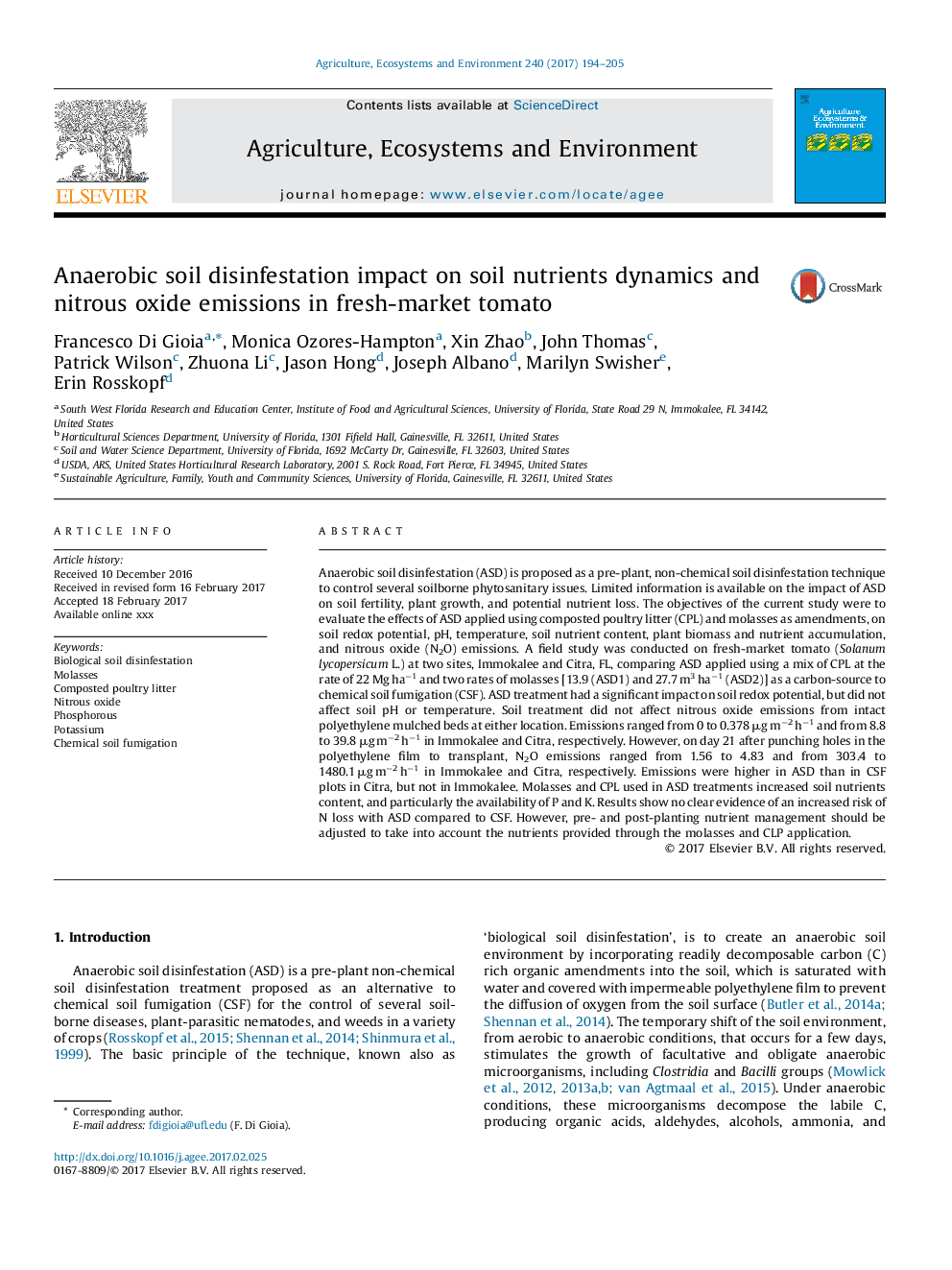ترجمه فارسی عنوان مقاله
اثرات ضد عفونی خاک بی هوازی بر پویایی مواد مغذی خاک و انتشار اکسید نیتروژن در گوجه فرنگی تازه وارد
عنوان انگلیسی
Anaerobic soil disinfestation impact on soil nutrients dynamics and nitrous oxide emissions in fresh-market tomato
| کد مقاله | سال انتشار | تعداد صفحات مقاله انگلیسی |
|---|---|---|
| 135340 | 2017 | 12 صفحه PDF |
منبع

Publisher : Elsevier - Science Direct (الزویر - ساینس دایرکت)
Journal : Agriculture, Ecosystems & Environment, Volume 240, 1 March 2017, Pages 194-205
ترجمه کلمات کلیدی
ضد عفونی کننده بیولوژیکی خاک، ملاس بستر کامپوزیت مرغ، اکسید نیتروژن، فسفر، پتاسیم، فومی سازی خاک شیمیایی،
کلمات کلیدی انگلیسی
Biological soil disinfestation; Molasses; Composted poultry litter; Nitrous oxide; Phosphorous; Potassium; Chemical soil fumigation;

